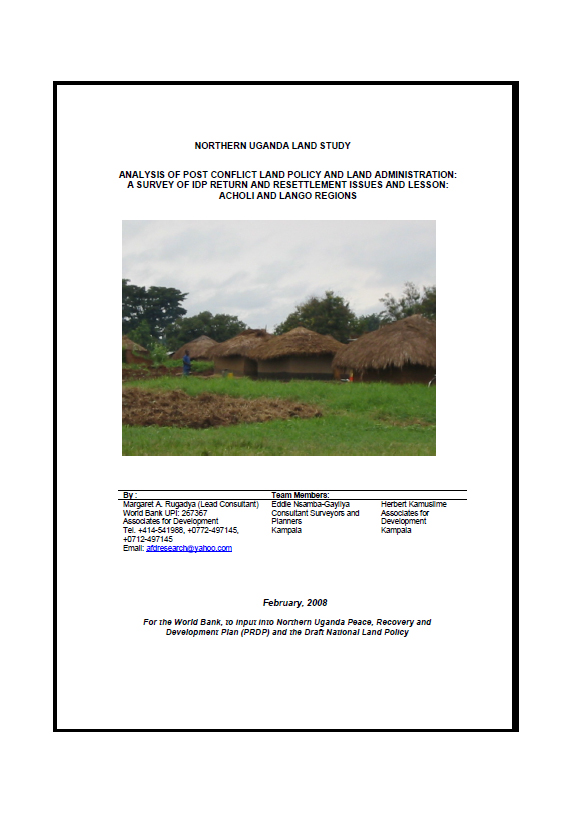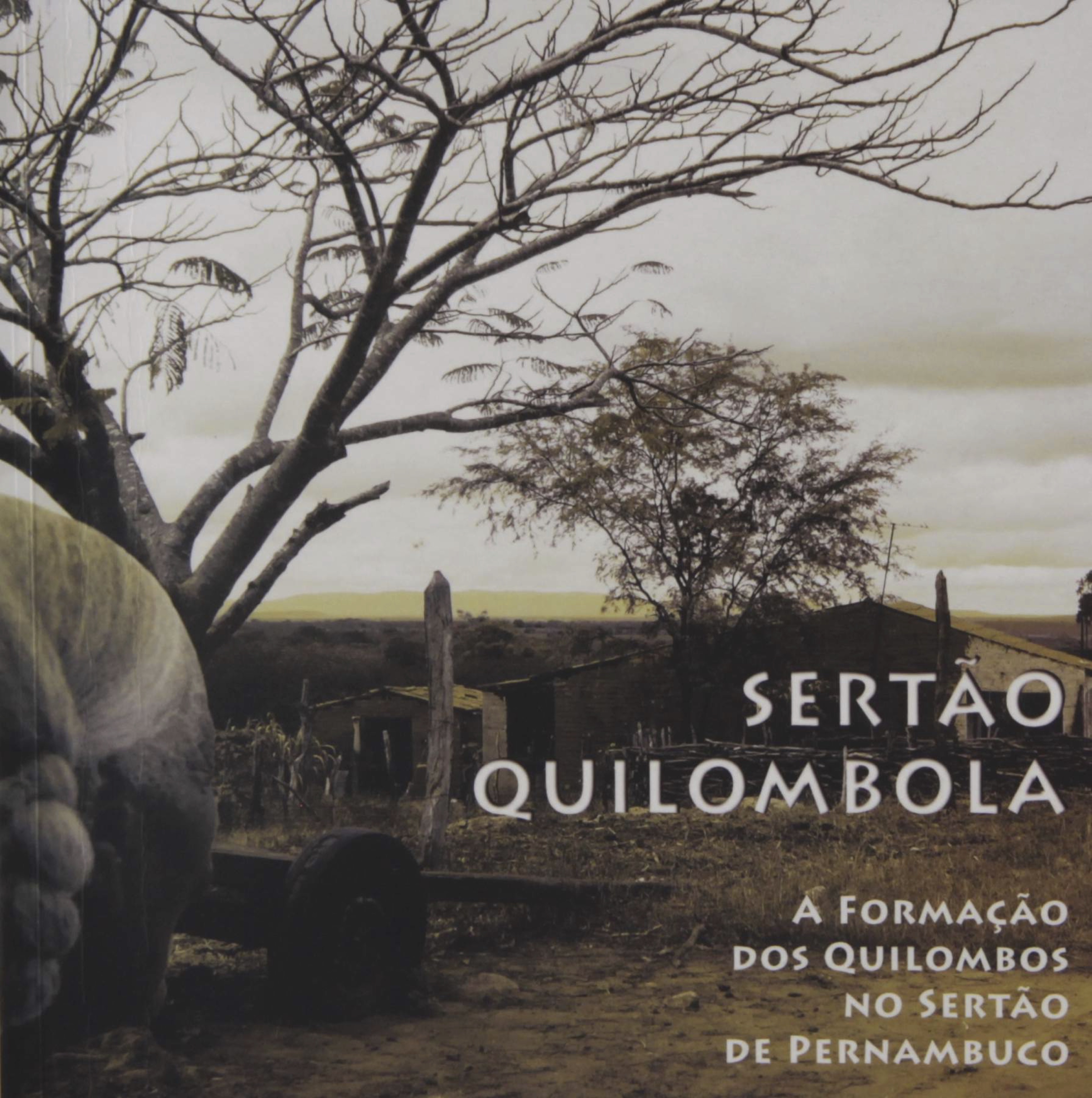ANALYSIS OF POST CONFLICT LAND POLICY AND LAND ADMINISTRATION
This is the second in a series of land studies for northern Uganda, whose core objective is to inform the Plan for Recovery and Development of Northern Uganda (PRDP) and the National Land Policy. It builds on the work of the first phase conducted in Teso region to present a more quantitative analysis of trends on disputes and claims on land before displacement, during displacement and emerging trends or occurrences on return for Acholi and Lango sub-regions.





